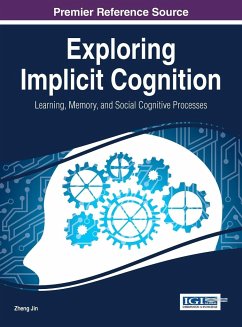
Implicit Learning and Tacit Knowledge
An Essay on the Cognitive Unconscious

PAYBACK Punkte
38 °P sammeln!
Implicit knowledge, a term coined by Reber in 1965, is acquired independent of conscious attempts to learn, and generally without the capacity to communicate what has been acquired. One of the core assumptions of this argument is that implicit learning is a fundamental process, one that lies at the very heart of the adaptive behavioural repertoire of every complex organism. This is a highly readable account of the cognitive unconscious, focusing in particular on the problem of implicit learning.














